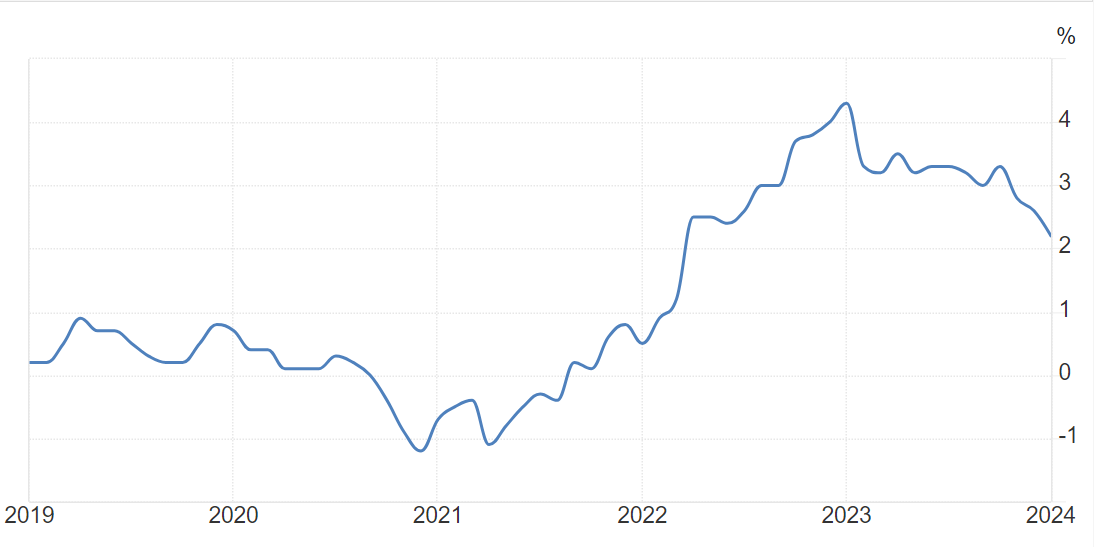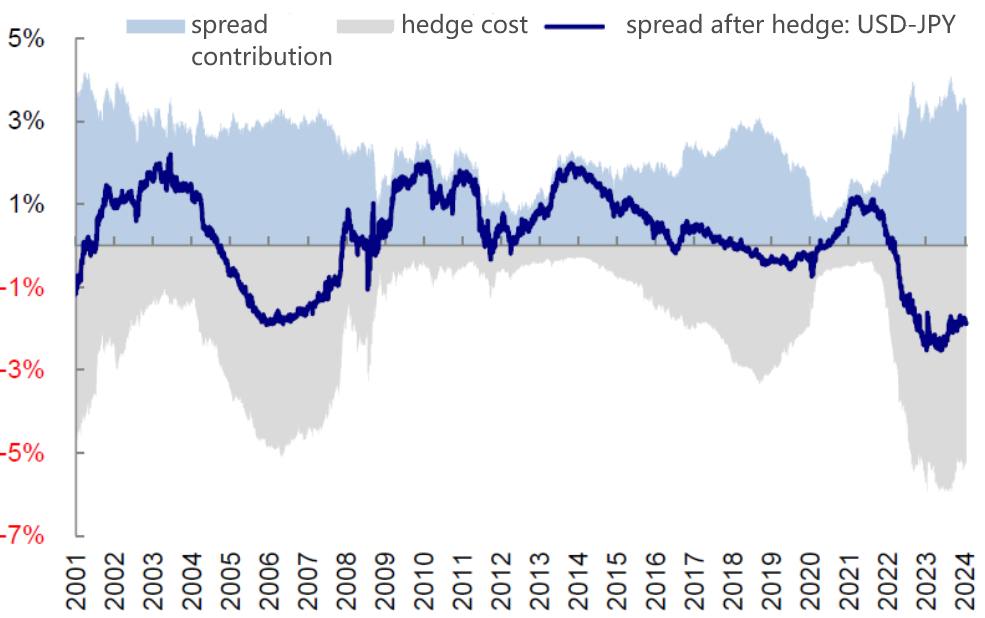How Bank of Japan decides the liquidity?
In the history, the Bank of Japan has often been ambiguous in its attitude towards policy shifts, allowing the market to digest expectations on its own but without providing a clear timetable. Policy shifts are often "unexpected yet reasonable." $Japanese Yen - Mar 2024(JPY2403)$ $Japanese Yen - main 2406(JPYmain)$ $iShares MSCI Japan ETF(EWJ)$
The long-term loose policy has led to the monetization of the fiscal deficit, distortion of government bond prices, and depreciation of the yen.
In recent years, as the growth momentum of the Japanese economy gradually recovers and inflation levels warm up, the subjective and objective conditions for the Bank of Japan to exit the loose policy have gradually matured.
Therefore, since the beginning of the year, due to the economic and inflation restart, coupled with the stronger-than-expected results of "shunto" wage hikes, the expectation of Japan abandoning the loose policy has become the strongest for investors.
Earlier, the Nikkei reported that "the Bank of Japan will end negative interest rates in the March meeting," specific measures may include but are not limited to:
exiting negative interest rates;
abandoning YCC;
ending the purchase of ETFs.
However, these three points are already reflected in market expectations:
the Bank of Japan's interest rate hike may be limited, even if a 10bp hike only returns to 0%, and there still exists a high interest rate differential with the U.S., carry trades remain active, and the medium to long-term impact on the financial markets is limited.
The Bank of Japan has actually abandoned YCC in previous adjustments, and the future scale of bond purchases may remain unchanged with limited impact.
The Bank of Japan has nearly stopped purchasing ETFs, and officially announcing the end of ETF purchases also has limited impact.
We believe that the Bank of Japan may also be conducting a "dovish interest rate hike."
First, the momentum of inflation in Japan has slowed down. The year-on-year CPI growth rate has been declining for two consecutive months.
Under the influence of high base figures and low energy prices, Japan's inflation has been maintained above 2%, and there is pressure. The core CPI is slowing down faster, with the year-on-year core CPI declining for five consecutive months, from a peak of 4.3% in August 2023 to 3.5% in January 2024. The high base figure from the previous year brings greater pressure on this year's core CPI.

Therefore, Bank of Japan officials generally believe that Japan's price pressures are not enough to justify following the footsteps of the United States.
If the central bank raises short-term rates too quickly, it may harm the economy. The Bank hopes to avoid giving the impression of being eager to tighten monetary conditions, fearing that this view may cause market confusion. Even if the central bank ends negative interest rate policies, it is hard to imagine that it will continue to raise rates rapidly.
Secondly, the exit from negative interest rates has been fully anticipated by the market.
Since September 2023, the Bank of Japan has continuously communicated the possibility of exiting the negative interest rate policy to the market.
The market currently has ample expectations, and the rate adjustments have been largely reflected in the Japanese bond market since January of this year.
Japanese interest rate levels across various terms have risen by about 20-30 basis points from the beginning of the year.
The significant wage hike of "shunto" to a record high since 1991 has fueled the market's growing bets on an early rate hike by the Bank of Japan.
Of course, the movements in the yen will determine the liquidity of other markets. As the Bank of Japan tightens monetary policy, the return of cheap money globally diminishes.
The Bank of Japan's discontinuation of balance sheet expansion will also temporarily pressure global financial liquidity.
Disclaimer: Investing carries risk. This is not financial advice. The above content should not be regarded as an offer, recommendation, or solicitation on acquiring or disposing of any financial products, any associated discussions, comments, or posts by author or other users should not be considered as such either. It is solely for general information purpose only, which does not consider your own investment objectives, financial situations or needs. TTM assumes no responsibility or warranty for the accuracy and completeness of the information, investors should do their own research and may seek professional advice before investing.
- LustrousL·2024-03-18Great ariticle, would you like to share it?LikeReport

